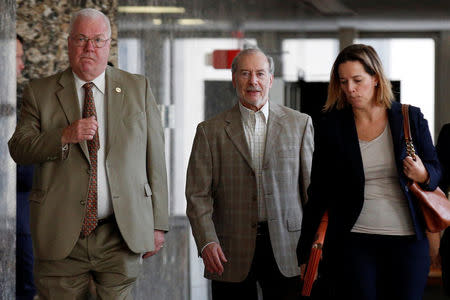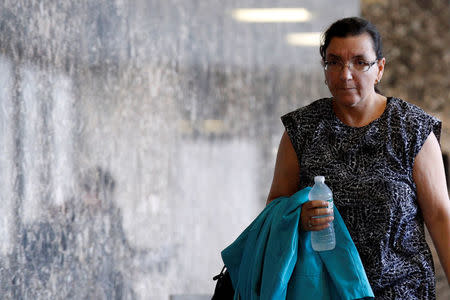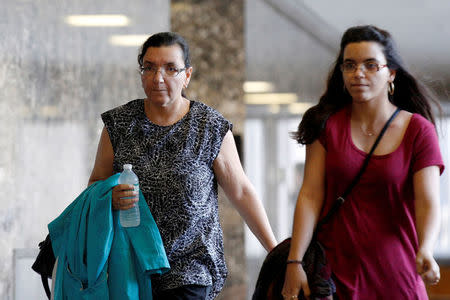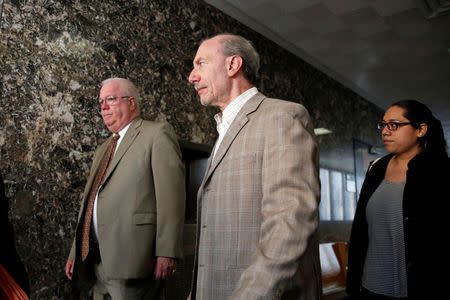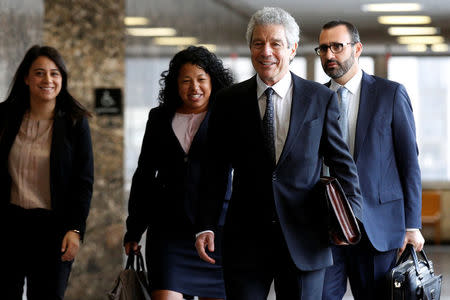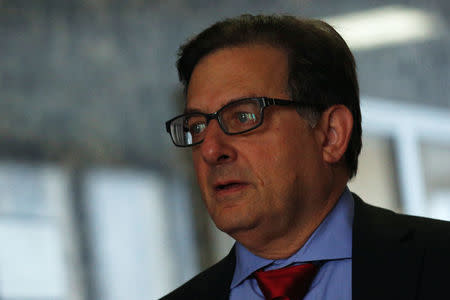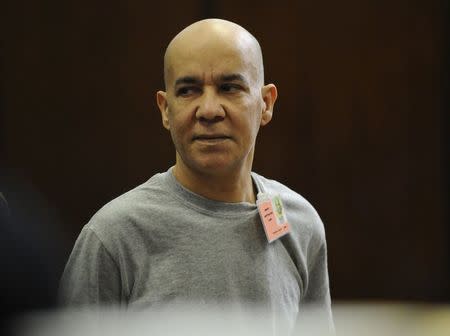Ex-jurors return for New York boy missing since 1979
By David Ingram
NEW YORK (Reuters) - Some jurors who deadlocked last year in the trial of a man charged with kidnapping and killing six-year-old Etan Patz in New York City in 1979 came back to court on Wednesday to watch the opening of a retrial in the notorious case.
Pedro Hernandez, 55, is on trial in a state court for the second time in the death of the boy, who disappeared in lower Manhattan 37 years ago and drew national attention to the plight of missing children.
A prosecutor and a Hernandez defense attorney delivered opening arguments to a full courtroom that included a newly selected second jury as well as about half of the 12 jurors from the first trial who were there as spectators.
The first trial ended with the judge declaring a mistrial. Jurors deliberated for 18 days without reaching a unanimous verdict, which is required for conviction. Eleven had voted to convict, while one held out for acquittal.
Patz vanished as he walked alone for the first time to a school bus stop in the SoHo neighborhood on May 25, 1979.
A former worker at a delicatessen near the bus stop, Hernandez confessed to the crimes in 2012, but his attorneys say he is mentally ill and falsely confessed under police coercion. He could face life in prison if convicted.
Patz's picture was one of the first to appear on milk cartons, which in the 1980s became a popular means of seeking leads about missing children. His disappearance also helped bring about a national database about such cases.
The holdout juror from the first trial, Adam Sirois, 43, said he returned to demonstrate he was still confident that Hernandez is not guilty. "I wish we didn't have to be here," he said.
Two other ex-jurors arrived at the courthouse by the side of Stan Patz, Etan's father, who has expressed frustration with last year's mistrial.
Despite a massive search, Patz's body was never found. In 2012, investigators received a tip from Hernandez's brother-in-law, who said Hernandez had confessed to a prayer group.
"It's a cautionary tale, a defining moment, a loss of innocence in this city and in every city where it was written about," Assistant District Attorney Joan Illuzzi told a newly selected jury on Wednesday.
Defense attorney Harvey Fishbein told jurors they would hear evidence police took advantage of Hernandez's history of mental illness, including hallucinations, as well as evidence about a past suspect in the case, convicted sex offender Jose Ramos.
(Editing by David Gregorio and Andrew Hay)

